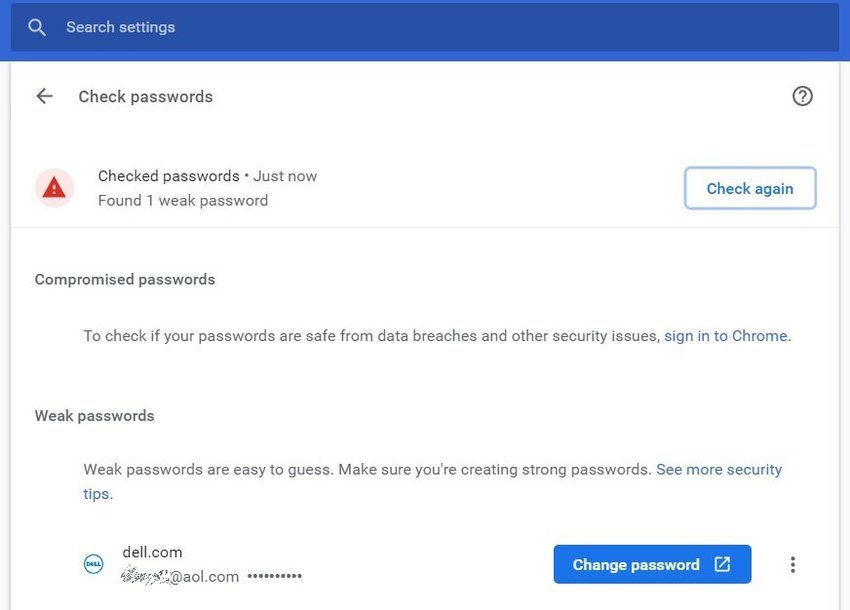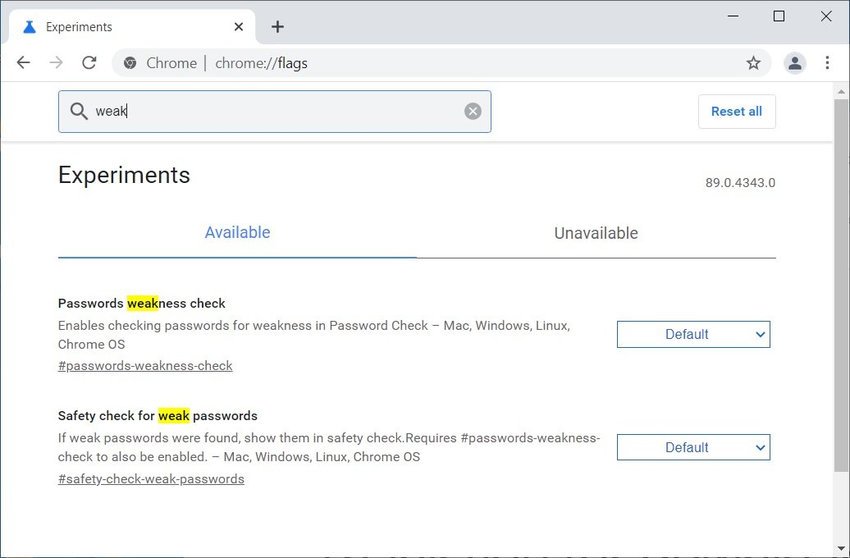Google Chrome will alert you shortly when you use weak passwords. The service is currently in the canary and is expected to come in the stable version.

The security of your online accounts depends a lot on how strong your passwords are, and if they're too easy, the hackers they could hack into your accounts.
To make sure its users aren't using weak passwords, Chrome has added a new security check feature that will alert you if the saved codes is weak.
The new feature comes in addition to the existing one where it notifies you if a stored password is found in a database with compromised passwords.
Google will automatically detect and mark weak passwords when performing a security check, as shown below.

The new Chrome security check feature is not yet available on the fixed channel, but you can enable it in Chrome Canary by following these steps:
- In the Browser Chrome Canary open the tab Chrome: // flags
- Search for the word “weak”(Weak) and activate the flags:“Safety check for weak passwords”(Security check for weak passwords) and“Passwords weakness check”(Password weakness check).
 3. When prompted to restart the program tours, do it.
3. When prompted to restart the program tours, do it.
To check your weak passwords using a security check, just go to Settings> Security Check> Check Now to perform a security check on your passwords.
Once clicked, Google will automatically scan the saved passwords and highlight the weakest ones. You can click the "Review" button to make changes to the saved password.





